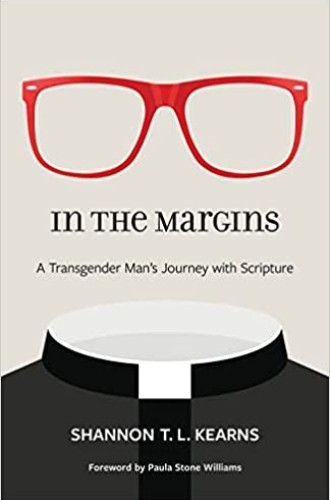Reading the Bible with a transgender minister
Shannon Kearns knows and is known by scripture deeply; he knows scripture better because he is trans.
There are pragmatic reasons that the expanding field of Christian transgender nonfiction overwhelmingly features memoirs. There is so little for trans people in the church, and memoir can be a productive space to play without needing to attach arguments to the scrutiny of more restrictive conversation streams (academic theology, say, or history). Like life, memoir can have its own shape and list of privileged sources to draw from. And from a trans writer’s standpoint, memoirs deliver the relational offering that many marginalized people so desperately want to provide: the vital proof for trans readers that someone else like them exists and has figured out how to sustain that existence.
Thus, instead of thinking about whether or not trans Christians can exist, ordained minister Shannon T. L. Kearns asserts that his work begins with an assumed yes. In the Margins opens by telling us that trans and other LGBTQ Christians are worthy of love and welcome at God’s table as both clergy and laity. Instead of wondering how that can be so, Kearns tells us that his book will offer one way to “do” Christianity while trans.
Kearns’s work is so uncomplicatedly compassionate in its narrative voice that reading it at times felt like sitting at coffee hour with a generous and utterly safe church friend. As he tells us, his Christian life began in an evangelical childhood formed by fundamentalist schooling. This felt like important, helpful context for me as I read and made sense of his interpretation of biblical figures and stories across his life so far. By rendering scripture with a capital S and by colloquially offering narrative glosses of foundational Bible stories (Joseph, Rahab, Jacob wrestling the angel, the figure of the eunuch), Kearns chooses a very particular—perhaps American, perhaps evangelical—way of zeroing in on a story and then telling us how we should understand it. There are gestures toward the vast and diverse literary and social worlds that have historically interpreted these stories, but Kearns treats them as context that is less important than the greater value of applying scripture to a contemporary or quotidian situation.





